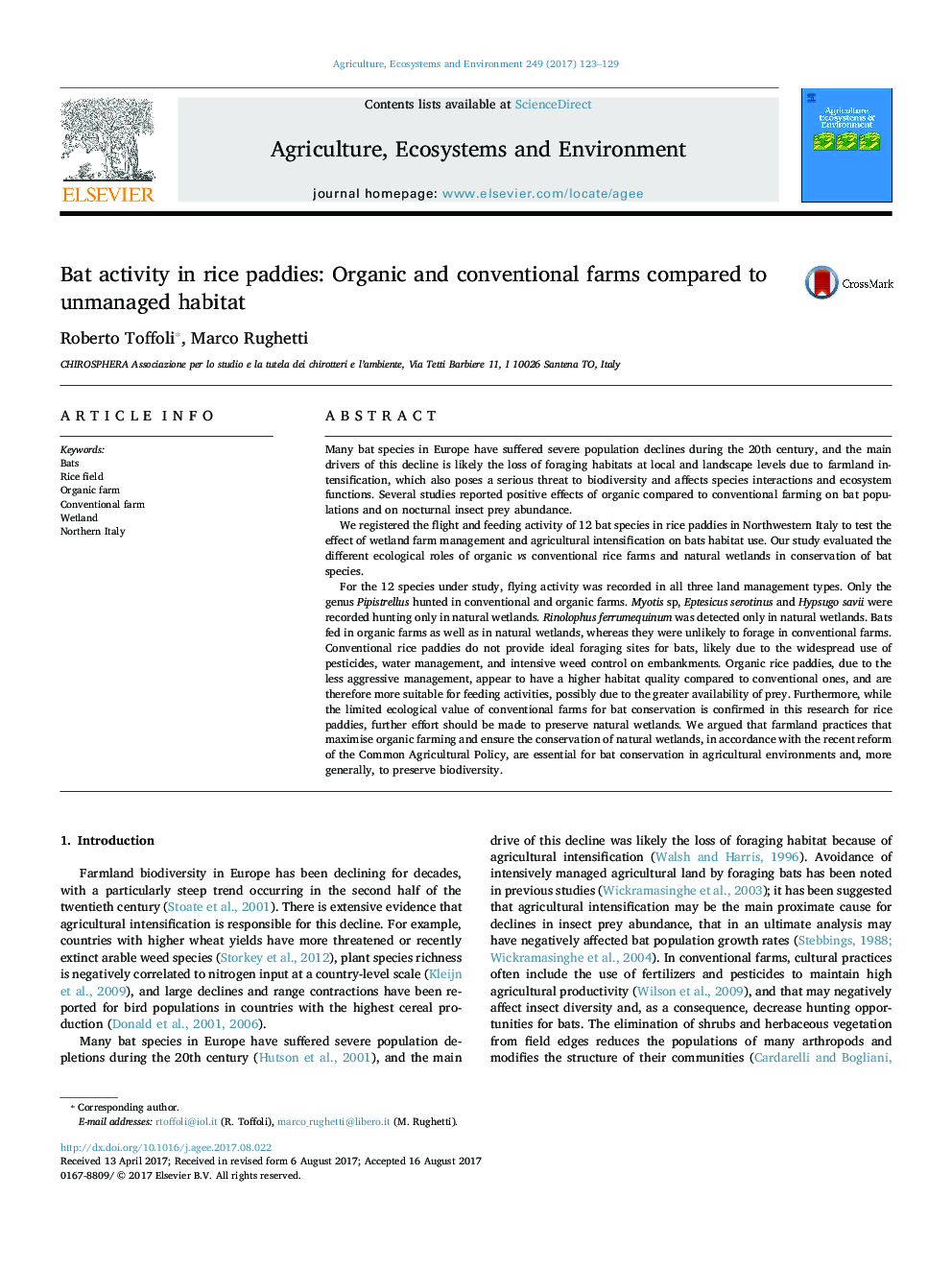| Article ID | Journal | Published Year | Pages | File Type |
|---|---|---|---|---|
| 5538196 | Agriculture, Ecosystems & Environment | 2017 | 7 Pages |
Abstract
For the 12 species under study, flying activity was recorded in all three land management types. Only the genus Pipistrellus hunted in conventional and organic farms. Myotis sp, Eptesicus serotinus and Hypsugo savii were recorded hunting only in natural wetlands. Rinolophus ferrumequinum was detected only in natural wetlands. Bats fed in organic farms as well as in natural wetlands, whereas they were unlikely to forage in conventional farms. Conventional rice paddies do not provide ideal foraging sites for bats, likely due to the widespread use of pesticides, water management, and intensive weed control on embankments. Organic rice paddies, due to the less aggressive management, appear to have a higher habitat quality compared to conventional ones, and are therefore more suitable for feeding activities, possibly due to the greater availability of prey. Furthermore, while the limited ecological value of conventional farms for bat conservation is confirmed in this research for rice paddies, further effort should be made to preserve natural wetlands. We argued that farmland practices that maximise organic farming and ensure the conservation of natural wetlands, in accordance with the recent reform of the Common Agricultural Policy, are essential for bat conservation in agricultural environments and, more generally, to preserve biodiversity.
Related Topics
Life Sciences
Agricultural and Biological Sciences
Agronomy and Crop Science
Authors
Roberto Toffoli, Marco Rughetti,
